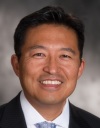Are you ready for radiation oncology's big event?
by Gus Iversen, Editor in Chief | October 10, 2022
Rad Oncology
From the October 2022 issue of HealthCare Business News magazine
HCB News: How did you first become involved with ASTRO?
GJ: I went to my first ASTRO meeting while still a resident, and I joined ASTRO as soon as I was board-certified.
My active involvement in ASTRO dates to 2004, when an e-mail popped up about the first ASTRO Advocacy Day. After that experience, it was obvious to me that our efforts in D.C. have an impact on our specialty and our daily practice in the clinic. Over time, I became more involved with government relations and other ASTRO committees, and eventually I was elected to the board of directors.
I have continued my involvement with ASTRO because I have felt, as a practicing radiation oncologist, that the society offers support in many different realms: education, health policy, guidelines, promoting science and advocacy.
HCB News: What initiatives top your list for your time as chair of the ASTRO Board?
GJ: My overall goal is to raise the profile of radiation oncology. Our specialty is an important pillar of cancer care, and it provides precise high-value treatment for curative intent and palliation. Most people with cancer will receive radiation treatment at least once during their disease course.
I will continue our initiative to promote diversity and inclusion in our society and specialty. ASTRO members voted to create a Health Equity, Diversity and Inclusion Council, with representation on the board of directors, so that we can include this focus throughout our society’s activities.
We also want to promote our younger members and give them a stronger voice in ASTRO. Our board of directors has created an Early Career Committee to support this group of important stakeholders, who will be creating the future of our specialty.
As a society we need to extend our global collaboration and involvement in global oncology policy, and we will announce an exciting international radiation oncology effort at our annual meeting.
Finally, we're immensely proud of the care and value we deliver as radiation oncologists. There is a disconnect, however, between decreasing reimbursement for radiation therapy and the increasing quality of the care we provide to our patients. On the most fundamental level, we can't treat our patients to the best of our ability if we're not reimbursed fairly. We will continue our work in Washington to secure fair reimbursement for our doctors and practices.
HCB News: What ways does the pandemic continue to impact oncology?
GJ: We could see the immediate impact of a crisis promoting change. Health systems implemented telemedicine almost overnight. This required changes in payment policy, investment in technology and rapid and widespread implementation of a technology that was not regularly used by the vast majority of doctors. Telemedicine is now here to stay and will become the norm in many specialties.
HCB News: How did you first become involved with ASTRO?
GJ: I went to my first ASTRO meeting while still a resident, and I joined ASTRO as soon as I was board-certified.
My active involvement in ASTRO dates to 2004, when an e-mail popped up about the first ASTRO Advocacy Day. After that experience, it was obvious to me that our efforts in D.C. have an impact on our specialty and our daily practice in the clinic. Over time, I became more involved with government relations and other ASTRO committees, and eventually I was elected to the board of directors.
I have continued my involvement with ASTRO because I have felt, as a practicing radiation oncologist, that the society offers support in many different realms: education, health policy, guidelines, promoting science and advocacy.
HCB News: What initiatives top your list for your time as chair of the ASTRO Board?
GJ: My overall goal is to raise the profile of radiation oncology. Our specialty is an important pillar of cancer care, and it provides precise high-value treatment for curative intent and palliation. Most people with cancer will receive radiation treatment at least once during their disease course.
I will continue our initiative to promote diversity and inclusion in our society and specialty. ASTRO members voted to create a Health Equity, Diversity and Inclusion Council, with representation on the board of directors, so that we can include this focus throughout our society’s activities.
We also want to promote our younger members and give them a stronger voice in ASTRO. Our board of directors has created an Early Career Committee to support this group of important stakeholders, who will be creating the future of our specialty.
As a society we need to extend our global collaboration and involvement in global oncology policy, and we will announce an exciting international radiation oncology effort at our annual meeting.
Finally, we're immensely proud of the care and value we deliver as radiation oncologists. There is a disconnect, however, between decreasing reimbursement for radiation therapy and the increasing quality of the care we provide to our patients. On the most fundamental level, we can't treat our patients to the best of our ability if we're not reimbursed fairly. We will continue our work in Washington to secure fair reimbursement for our doctors and practices.
HCB News: What ways does the pandemic continue to impact oncology?
GJ: We could see the immediate impact of a crisis promoting change. Health systems implemented telemedicine almost overnight. This required changes in payment policy, investment in technology and rapid and widespread implementation of a technology that was not regularly used by the vast majority of doctors. Telemedicine is now here to stay and will become the norm in many specialties.
You Must Be Logged In To Post A CommentRegisterRegistration is Free and Easy. Enjoy the benefits of The World's Leading New & Used Medical Equipment Marketplace. Register Now! |
|















